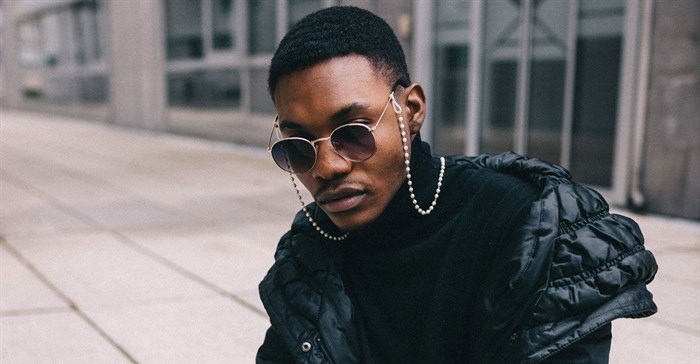Influencer marketing offers millions of eager enthusiasts a hit at celebrity status while working with brands and making a decent income.
From the onset, this has been the perfect marketing storm - brands reach a greater audience through trusted endorsements, and influencers share what they love and make money while doing so.
But what happens when our industry booms faster than you can say 'Fomo' and without regulation? In this case, the dark side of influencer marketing rears its chilling head, and we begin to question how we can do more to protect influencers, brands and the ever-growing influencer marketing audience.
The dark side of influencer marketing
Success in the industry isn't hard to imagine. With the fame of self-made influencers like YouTuber Zoella and TikTok it-girl Addison Rae, millions of eager social media users are inspired to break into the industry and compete for a piece of the perfectly captured pie.
The high stakes have sparked intense competition for followers, attention, engagement and sponsorship deals. This has, unfortunately, led to the rise of underhanded, explicit tactics used as an attempt to stand out from the crowd and some entities are all too eager to take advantage.
Fostering unattainable standards
According to Statista, as of January 2021, men and women between the ages of 18 to 24 years old make up 25.4% of social media users in South Africa. Couple this with male and female teenagers - aged between 13 to 17 years - who make up 10.4% of social media users, young, impressionable individuals make up a large portion of South Africa’s social media audience.
Influencer culture is regularly called out for promoting unrealistic and unattainable standards, drastically distorting society’s view of ‘attractive’ and ‘successful’. Both male and female audiences are fed false, highly filtered and highly edited versions of success and what one should look like.
Additionally, many social media platforms, such as Instagram and Snapchat, are equally being called out for providing ‘catfish’ filters that entirely distort physical features in an effort to make users more beautiful. It begs the question, what are we saying about the way we actually look?
As a result, there are numerous studies that highlight the negative impact that social media has on the youth of South Africa, including their mental health and perceptions of their bodies and physical appearances.
Highly sexualised content
It’s an age-old truism; sex sells. One of the easiest ways to grab attention on social media is through highly sexualised content. Throughout the industry, sexualised imagery has grabbed attention and this has been monetised to sell products in industries such as fitness, beauty and fashion.
However, more and more, we are seeing teenagers using a similar tactic in an effort to become influencers, capturing attention through explicit content and trading images of their bodies for followers.
And the sad thing is, it often works. These individuals do rack up the followers and boast impressive levels of engagement. However, as an industry, we need to distinguish influencer marketing from individuals that simply have a large audience.
Influencer marketing involves mutual benefit - influencers benefit from a source of income and brands benefit from an already established and engaged audience. That being said, in our experience, our brands want to work with influencers that align with the brand and can represent a similar brand message to their audience. They do not seek out young individuals posting sexualised content. It falls on our industry to educate the South African youth: posting sexualised content is not going to result in branding and endorsement contracts.
Setting this aside, and arguably worse for our young people, we have seen these posts result in blatant sexual harassment which many argue is poorly policed by social media platforms such as Instagram.
Young people become the target of sexually aggressive comments, objectifying messages from followers, and a lack of privacy and boundaries for their personal lives. In some cases, these individuals fall victim to sexual solicitation, physical threats, bullying and even stalking.
Misrepresentation and commercialisation
Lastly, the influencer marketing industry has been riddled with underhanded tactics involving brands taking advantage of influencers or influencers taking advantage of their audience.
Despite most influencer accounts being genuinely authentic, adding real value to brands and their audiences, some influencers may get overwhelmed by opportunities for money and attention.
This leads to influencers failing to declare sponsored content, promoting dangerous products to young audiences that they don’t actually care for or use themselves, including diet pills, pharmaceuticals and tobacco, and bombarding brands with requests for free products and sponsorship deals.
In addition, some aspiring social media stars have actually admitted to faking sponsorship deals and using social media bots to grow their following in an effort to appear more influential than they are.
On the other end of the spectrum, without proper representation, some influencers, especially those that are just starting out, stand at risk of exploitation by brands in the name of building a career.
Certain brands have been accused of overworking influencers, providing them with unattainable work schedules, paying influencers far less than what they’re worth or not even paying them at all. Alternatively, influencer contracts can include damaging clauses such as white labelling an influencer’s account, taking once authentic and organic content and spinning it into a crafted marketing strategy that only fits the brand.
Craving authenticity
When done right, influencer marketing creates a sense of trust, promotes authenticity and fosters a culture of acceptance. It can be a glamorous line of work as well as a successful marketing channel for brands to genuinely connect with their audiences.
However, when misconstrued, we can find ourselves asking ethical, cultural, and legal questions and not in a good way. People are left confusing facts with fiction, consuming distorted versions of reality and the standards of an entire industry are diluted.
























































